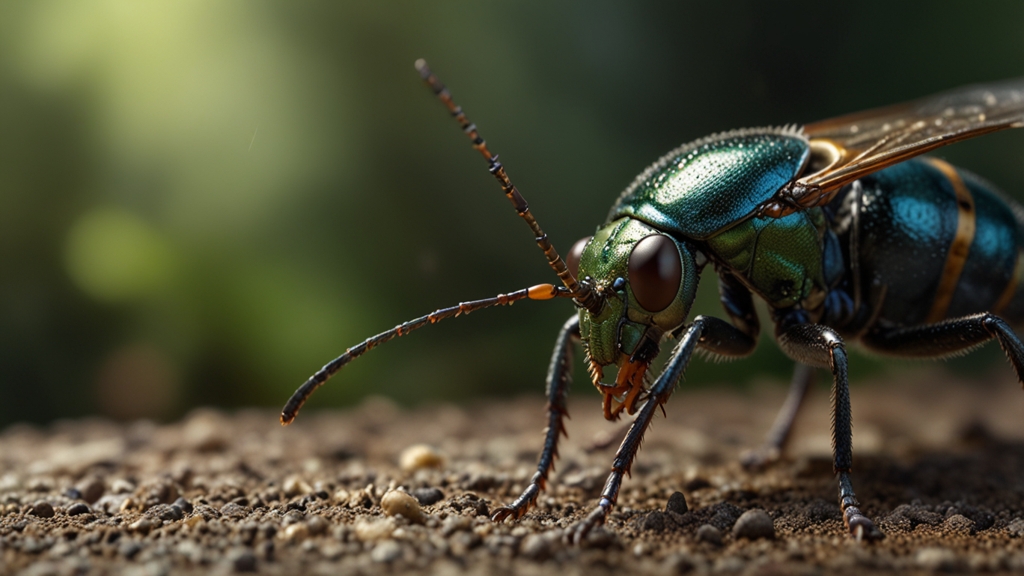Insects and Human Health: Allies or Enemies?
Insects have been part of the Earth's ecosystem for millions of years, and their relationship with humans is as varied as it is ancient. While some view these tiny creatures as nuisances or even threats, others recognize their crucial role in maintaining ecological balance and contributing to human health in surprising ways. So, are insects allies or enemies of human health? The answer is complex and deserves a closer look.
The Dark Side: Insects as Enemies
Undoubtedly, insects can pose serious threats to human health. Some of the most notorious examples include mosquitoes, which are known vectors for diseases such as malaria, dengue fever, and Zika virus. According to the World Health Organization (WHO), malaria alone causes over 400,000 deaths annually, most of them in sub-Saharan Africa.
"Malaria remains one of the world's deadliest diseases, especially in developing countries. Effective vector control is essential to reducing the incidence of this and other insect-borne illnesses." – World Health Organization
Other insects that serve as vectors for serious diseases include ticks, which can spread Lyme disease, and fleas, historically infamous for their role in transmitting plague. In many parts of the world, these creatures are more than mere pests—they are genuine public health threats that necessitate vigilant control measures.
The Bright Side: Insects as Allies
However, not all insects are foes. Many are incredibly beneficial to human health, directly or indirectly. Pollinators such as bees, butterflies, and some beetles play an indispensable role in agriculture by facilitating the reproduction of many crop species. Without these pollinators, our food supply would be severely compromised.
"One out of every three bites of food we eat exists because of animal pollinators like bees, butterflies, birds, and bats." – Pollinator Partnership
Beyond their role in pollination, some insects also contribute to the human diet. Edible insects, such as crickets and mealworms, are gaining attention as a sustainable and nutritious food source. Rich in protein, vitamins, and minerals, edible insects offer a promising solution to global food security challenges.
Moreover, insects are invaluable in the medical field. For instance, the larvae of the common greenbottle fly are used in maggot therapy to clean wounds and promote healing. This method is highly effective for treating chronic and non-healing wounds, such as diabetic ulcers.
Ecosystem Services and Biodiversity
Insects also contribute to human health by maintaining ecological balance. They act as decomposers, breaking down organic matter and recycling nutrients back into the environment. This process is vital for soil health and agricultural productivity. Additionally, insects serve as a food source for many other animals, playing a critical role in the food chain.
Furthermore, insects contribute to biodiversity, which is crucial for the resilience of ecosystems. A diverse ecosystem is more capable of withstanding environmental changes, thus ensuring the sustainability of the services it provides to humanity.
In Conclusion
The relationship between insects and human health is a double-edged sword. While some insects undeniably pose significant health risks, others offer substantial benefits, from pollination and nutrition to medical treatments and ecological stability. Rather than viewing insects as inherently good or bad, it is more accurate to recognize their multifaceted role in our world.
As we continue to study and manage insect populations, a balanced approach is essential. By mitigating the threats while harnessing the benefits, we can create a healthier, more sustainable coexistence with these fascinating creatures.
Final Thoughts
Insects are neither mere allies nor outright enemies; they are complex, multifaceted beings that impact human health in a variety of ways. Understanding and managing their dual roles offers a path towards enhancing public health, food security, and ecological resilience. As we step into the future, it is imperative to adopt a nuanced perspective, acknowledging both the harms and the invaluable benefits that insects bring to our lives.










